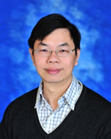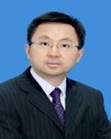Abstract
The integration of physical systems with networked sensing, computation networks, and embedded control with actuation has led to the emergence of a new generation of engineered systems, the Cyber-Physical Systems (CPS). Such systems emphasize the link between cyber space and physical environment (i.e., time, space, and energy). CPS represents the next generation of complex engineering systems. They are large scale dynamic systems that offer significant processing power while interacting across communication networks.
RFID was one of the early technology that facilitated interfacing the physical world with the cyber space. RFID was mainly developed to monitor and track objects in real time. The RFID applications in CPS systems are more sophisticated and appealing. As a matter of fact the emergence of CPS has given RFID a new life.
CPS will help to solve the grand challenges of our society, such as, aging population, limited resources, sustainability, environment, mobility, security, health care, etc. Applications of CPS cover a wide band of economic, medical, and entertainment sectors. It includes; Transportation: automobiles, avionics, unmanned vehicles and smart roads; Large Scale Critical Infrastructure: bridges, mega buildings, power grid, defense systems; Health Care: medical devices, health management networks, telemedicine; Consumer Electronics: video games, audio/video processing, and mobile communication.
Building Cyber-Physical Systems is not a trivial task. The difficulty arises from the existing gap in modeling and computing of the physical and cyber environments. The design process require new theories, models, and algorithms that unify both environments in one framework. None of the current state-of-the art methods are able to overcome the challenges of developing the unified CPS design paradigm.
Several of these issues will be discussed in this talk. Case studies of real world CPSs will be illustrated.
Speaker Biography
Dr. Magdy A. Bayoumi is the Department Head of W. H. Hall Department of Electrical & Computer Engineering. He is the Hall Endowed Chair in Computer Engineering. He was the Director of the Center for Advanced Computer Studies (CACS) and the Department Head of Computer Science Department. He was. Also, the Loflin Eminent Scholar Endowed Chair in Computer Science, all at the University of Louisiana at Lafayette where he has been a faculty member since 1985. He received B.Sc. and M.Sc. degrees in Electrical Engineering from Cairo University, Egypt; M.Sc. degree in Computer Engineering from Washington University, St. Louis; and Ph.D. degree in Electrical Engineering from the University of Windsor, Canada.
Dr. Bayoumi has graduated about 100 PHD and 150 MSC students, authored/co-authored about 600 research papers and more than 10 books. He was the guest/co-guest editor of more than 10 special journal issues, the latest was on Machine to Machine Interface.
Bayoumi is an IEEE Fellow. He has served in many capacities in the IEEE Computer, Signal Processing, and Circuits & Systems (CAS) societies. Currently, he is the vice president of Technical Activities of IEEE RFID council and he is on the IEEE RFID Distinguished Lecture Program (DLP). He is a member of IEEE IoT Activity Board. Bayoumi has received many awards, among them; the IEEE CAS Education award and the IEEE CAS Distinguished Service award. He was on the IEEE DLP programs for CAS and Computer societies. He was on the IEEE Fellow Selection Committee. Bayoumi has been an ABET evaluator and he was an ABET commissioner and team chair. He has given numerous keynote/invited lectures and talks nationally and internationally. Bayoumi was the general chair of IEEE ICASSP 2017 in New Orleans. He, also, chaired many conferences including ISCAS 2007, ICIP 2009, and ICECS 2015.
Bayoumi was the chair of an international delegation to China, sponsored by People-to-People Ambassador, 2000. He received the French Government Fellowship, University of Paris Orsay, 2003-2005 and 2009. He was a Visiting Professor at King Saud University. He was a United Nation visiting scholar. He was a visiting professor at University of King Saud. He has been an advisor to many EE/CMPS departments in several countries.
Bayoumi was on the State of Louisiana Comprehensive Energy Policy Committee. He was the vice president of Acadiana Technology Council. He was on the Chamber of Commerce Tourism and Education committees. He was a member of several delegations representing Lafayette to international cities. He was on the Le Centre International Board. He was the general chair of SEASME (an organization of French Speaking cities) conference in Lafayette. He is a member of Lafayette Leadership Institute, he was a founding member of its executive committee. He was a column editor for Lafayette Newspaper; the Daily Advertiser.
Back to Top |

 Chia-Wen Lin is currently a Professor with the Department of Electrical Engineering, National Tsing Hua University (NTHU), Hsinchu, Taiwan. He is also Deputy Director of NTHU AI Research Center. His research interests include computer vision, image and video processing, and machine learning. He has served as an Associate Editor of IEEE Transactions on Image Processing, IEEE Transactions on Circuits and Systems for Video Technology, IEEE Transactions on Multimedia, IEEE Multimedia Magazine. He is a Fellow of the IEEE and a Distinguished Lecturer of IEEE CASS.
Chia-Wen Lin is currently a Professor with the Department of Electrical Engineering, National Tsing Hua University (NTHU), Hsinchu, Taiwan. He is also Deputy Director of NTHU AI Research Center. His research interests include computer vision, image and video processing, and machine learning. He has served as an Associate Editor of IEEE Transactions on Image Processing, IEEE Transactions on Circuits and Systems for Video Technology, IEEE Transactions on Multimedia, IEEE Multimedia Magazine. He is a Fellow of the IEEE and a Distinguished Lecturer of IEEE CASS.  Ce Zhu is currently a Professor with the School of Information and Communication Engineering, University of Electronic Science and Technology of China, Chengdu, China. His research interests include image/video coding and communications, 3D video, visual analysis and understanding, visual perception and applications. He has served on the editorial boards of a few journals, including as an Associate Editor of IEEE Transactions on Image Processing, IEEE Transactions on Circuits and Systems for Video Technology, IEEE Transactions on Broadcasting, IEEE Signal Processing Letters, and IEEE Communications Surveys and Tutorials. He is a Fellow of the IEEE and a Fellow of the IET.
Ce Zhu is currently a Professor with the School of Information and Communication Engineering, University of Electronic Science and Technology of China, Chengdu, China. His research interests include image/video coding and communications, 3D video, visual analysis and understanding, visual perception and applications. He has served on the editorial boards of a few journals, including as an Associate Editor of IEEE Transactions on Image Processing, IEEE Transactions on Circuits and Systems for Video Technology, IEEE Transactions on Broadcasting, IEEE Signal Processing Letters, and IEEE Communications Surveys and Tutorials. He is a Fellow of the IEEE and a Fellow of the IET.